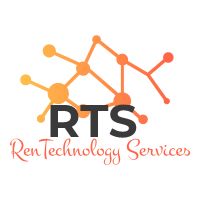For enterprises across industries, safeguarding the security of sensitive information is of the utmost significance in today’s digital environment. Organizations must implement strong information security management systems (ISMS) to protect their sensitive data and uphold the confidence of their stakeholders as cyber threats become more sophisticated. One widely recognized standard for implementing an effective ISMS is ISO/IEC 27001. In this article, we’ll examine the value of internal audits in evaluating an organization’s ISMS performance and achieving ISO/IEC 27001 compliance.
Understanding ISO/IEC 27001
ISO/IEC 27001 is an internationally recognized standard that provides a framework for establishing, implementing, maintaining, and continually improving an ISMS within an organization. It outlines the requirements for systematically managing sensitive information and mitigating the risks associated with its confidentiality, integrity, and availability. By adhering to ISO/IEC 27001, organizations can demonstrate their commitment to information security and gain a competitive edge in the market.
The Role of Internal Audits
Internal audits play a pivotal role in ensuring the effectiveness and efficiency of an organization’s ISMS. They provide a systematic and independent assessment of the ISMS implementation, identifying areas for improvement and verifying compliance with the ISO/IEC 27001 standard. Let’s delve into the key benefits and steps involved in conducting internal audits for information security management systems.
Benefits of Internal Audits
1. Compliance Verification: Internal audits help organizations determine whether their ISMS aligns with the ISO/IEC 27001 standard requirements. By conducting regular audits, organizations can proactively identify gaps and take corrective actions, ensuring ongoing compliance.
2. Risk Identification and Mitigation: Audits enable the identification of potential vulnerabilities and risks within an organization’s ISMS. This helps in implementing appropriate controls and measures to mitigate these risks effectively, safeguarding sensitive information from unauthorized access or compromise.
3. Process Improvement: Internal audits provide valuable insights into the efficiency and effectiveness of information security processes and controls. By identifying areas of improvement, organizations can optimize their operations, enhance their security posture, and streamline their information security practices.
Steps in Conducting Internal Audits
1. Planning: The first step in conducting an internal audit is to establish a comprehensive audit plan. This plan should define the audit objectives, scope, and criteria. It should also identify the resources required and the timelines for completing the audit.
2. Preparation: The audit team needs to gather relevant documentation, such as policies, procedures, and records related to the ISMS. They should become familiar with the ISO/IEC 27001 standard to make sure they fully comprehend the criteria.
3. Fieldwork: During this phase, the audit team conducts interviews, reviews processes, and performs sample testing to evaluate the effectiveness and implementation of the ISMS controls. They gather evidence to support their findings and identify any non-conformities or areas for improvement.
4. Reporting: The audit findings are documented in a comprehensive audit report. This report identifies the ISMS’s benefits and drawbacks and makes suggestions for development. The report should be clear, concise, and actionable, aiding the organization in addressing identified issues effectively.
5. Follow-up and Corrective Actions: Once the audit report is shared with the relevant stakeholders, the organization should prioritize and address the identified non-conformities or areas of improvement. Establishing a strong corrective action plan is crucial to guaranteeing prompt resolution of the problems found during the audit.
Conclusion
Conducting internal audits on an organization’s ISMS based on the ISO/IEC 27001 standard is vital for ensuring information security and maintaining compliance. By regularly assessing the effectiveness of their ISMS controls and processes, organizations can identify weaknesses, mitigate risks, and improve their overall security posture. Internal audits provide valuable insights that enable organizations to enhance their information security practices, protect sensitive data, and demonstrate their commitment to meeting international standards.

